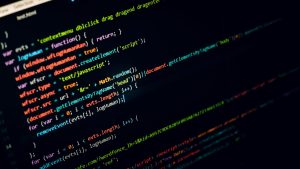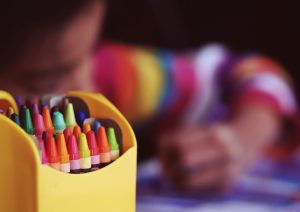Understanding skill-based learning through early childhood education
Welcome to the world of early childhood education, where little ones grow and learn in leaps and bounds. As parents and educators, we often focus on teaching our children academic skills such as reading, writing, and math. However, there is another component of education that is just as crucial – skill-based learning through early childhood education.
The Importance of Early Childhood Education
Early childhood education refers to the learning and development that takes place in the first eight years of a child’s life. This period is considered crucial as it lays the foundation for a child’s future physical, emotional, social, and cognitive development. It is during these early years that skill-based learning begins to take shape.
According to research, children who receive high-quality early childhood education are more likely to have better academic and social skills, increased self-esteem, and greater success in adulthood. This is because early childhood education focuses not only on academic learning but also on developing essential skills in children.
What is Skill-based Learning?
Skill-based learning is the practice of teaching children useful skills that will benefit them in their everyday lives and future academic and professional pursuits. These skills can be social, emotional, physical, or cognitive and serve as building blocks for a child’s development.
Social Skills
Social skills, also known as interpersonal skills, refer to a child’s ability to interact effectively with others. These skills include communicating, listening, cooperating, taking turns, and sharing. Children with strong social skills are able to form healthy relationships, understand and express their emotions appropriately, and effectively communicate their thoughts and feelings.
Emotional Skills
Emotional skills refer to a child’s ability to identify and manage their emotions in a healthy way. These skills include recognizing different emotions, understanding why they feel a certain way, and developing coping mechanisms to deal with those emotions. By teaching children emotional skills, we are helping them develop resilience and emotional intelligence, which are crucial for success in all areas of life.
Physical Skills
Physical skills, also known as motor skills, involve a child’s ability to use their body to perform tasks. These skills include both gross and fine motor skills, such as running, jumping, throwing, and writing. Developing physical skills is important as it not only helps with a child’s overall physical development but also contributes to their hand-eye coordination, spatial awareness, and ultimately, their academic success.
Cognitive Skills
Cognitive skills refer to a child’s mental abilities, such as memory, problem-solving, and critical thinking. These skills are crucial for academic success and overall intellectual growth. Early childhood education plays a vital role in developing cognitive skills as it provides children with learning experiences that stimulate their thinking and problem-solving abilities.
The Role of Early Childhood Education in Skill-based Learning
Early childhood education is the perfect platform for children to learn and develop essential skills. Through hands-on activities, engaging play, and social interactions, children are exposed to a variety of learning experiences that help them develop these skills.
One of the biggest advantages of early childhood education is that it encourages learning through play. Play-based learning allows children to explore and experiment, stimulating their curiosity and creativity while also developing their social, emotional, physical, and cognitive skills.
Furthermore, early childhood educators are trained to create a nurturing and stimulating environment that promotes skill-based learning. They are skilled in identifying each child’s individual needs and abilities and providing activities and experiences that cater to their development.
In Conclusion
Understanding skill-based learning through early childhood education is crucial for parents and educators. By providing children with opportunities to develop essential skills, we are setting them up for success in all areas of their lives. Early childhood education is not just about academic learning; it is about fostering holistic development and empowering our children to reach their full potential.










